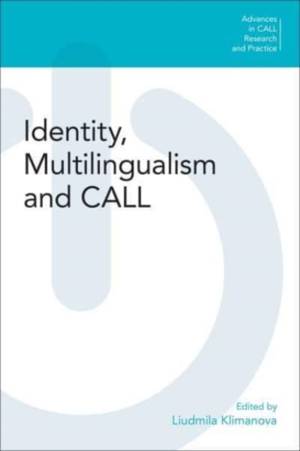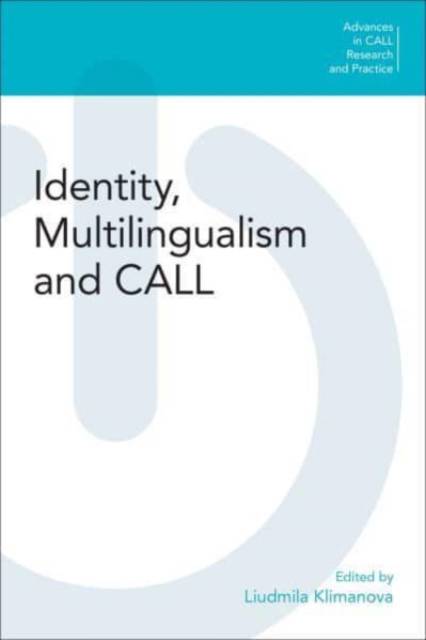
Wil je zeker zijn dat je cadeautjes op tijd onder de kerstboom liggen? Onze winkels ontvangen jou met open armen. Nu met extra openingsuren op zondag!
- Afhalen na 1 uur in een winkel met voorraad
- Gratis thuislevering in België vanaf € 30
- Ruim aanbod met 7 miljoen producten
Wil je zeker zijn dat je cadeautjes op tijd onder de kerstboom liggen? Onze winkels ontvangen jou met open armen. Nu met extra openingsuren op zondag!
- Afhalen na 1 uur in een winkel met voorraad
- Gratis thuislevering in België vanaf € 30
- Ruim aanbod met 7 miljoen producten
Zoeken
Identity, Multilingualism and Call
€ 48,45
+ 96 punten
Omschrijving
This volume focuses on a range of topics and studies that address the notion of plurilingualism and multilingual identity in computer-mediated language learning spaces. Interest in digital multilingual identity in the fields of applied linguistics and language education has been growing exponentially in recent years, encompassing new variables and realities of life, such as translanguaging, heightened multilingualism, linguistic superdiversity, multimodal computer-mediated communication, and even social justice and forensics. New theoretical assumptions and recent global challenges urge researchers to problematize the traditional notion of virtual identity in the face of increased virtual connectedness and the hybridization of transcultural and translingual practices and intersecting physical movements of people. Singling out identity research within the field of computer-assisted language learning (CALL) is particularly critical in the era of hyperlingualism, a form of multilingualism characterized by the increased participatory nature of digital communication and the provision of multiple languages in their own bounded spaces and places of use on the web and in other digital contexts. This volume contributes to this fast-growing body of interdisciplinary research, featuring conceptual papers and research studies of identity performance and multilingual communication in highly complexified digitally mediated social platforms. Although researchers have recently begun to explore some aspects of identity and plurilingualism in digital spaces, this volume seeks to (a) contextualize digital multilingual communication as it pertains to FL learning and teaching via a historical and conceptual overview of the multilingual movement in technologically mediated SLA along with in-depth explorations of how multilingual practices and digital affordances affect language learner identities beyond the classroom context, (b) fill the research void by exploring critical aspects of identity and multilingual digital communication across a range of educational and non-institutional contexts where language learners actively participate in translingual and plurilingual practices, and (c) illustrate new ways of evaluating and adapting CALL materials and teaching practices to accommodate multilingual subjects, and reflect the increasingly hyperlingual nature of digital communication.
Specificaties
Betrokkenen
- Uitgeverij:
Inhoud
- Aantal bladzijden:
- 224
- Taal:
- Engels
- Reeks:
Eigenschappen
- Productcode (EAN):
- 9781800500792
- Verschijningsdatum:
- 30/05/2022
- Uitvoering:
- Paperback
- Formaat:
- Trade paperback (VS)
- Afmetingen:
- 156 mm x 234 mm
- Gewicht:
- 535 g

Alleen bij Standaard Boekhandel
+ 96 punten op je klantenkaart van Standaard Boekhandel
Beoordelingen
We publiceren alleen reviews die voldoen aan de voorwaarden voor reviews. Bekijk onze voorwaarden voor reviews.










